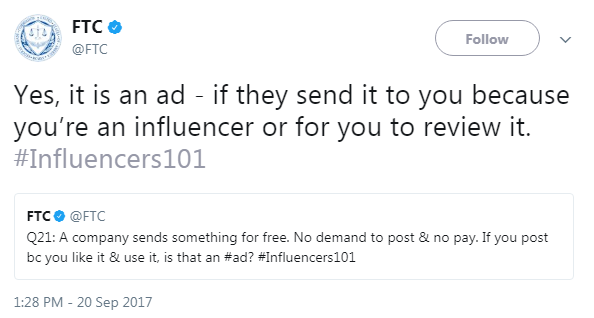I wonder if this means reviews where the review copy is free also must be noted as #ad?

Source: https://twitter.com/FTC/status/910601536824315904

Source: https://twitter.com/FTC/status/910601536824315904
